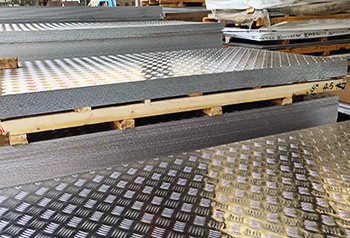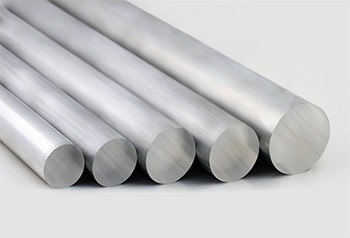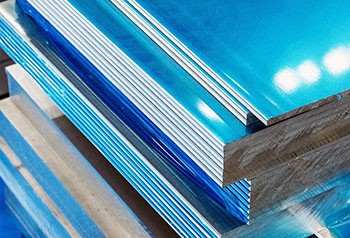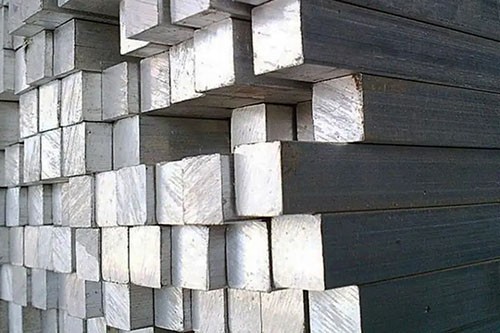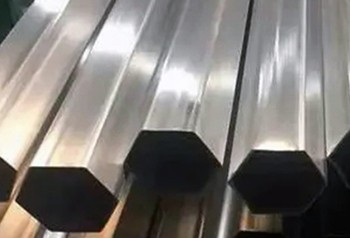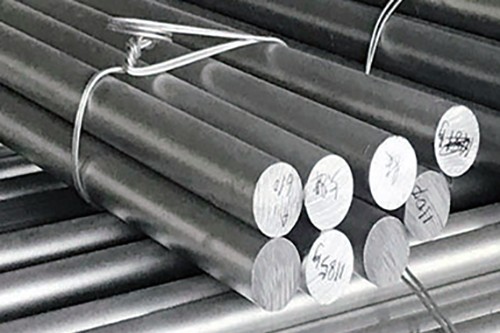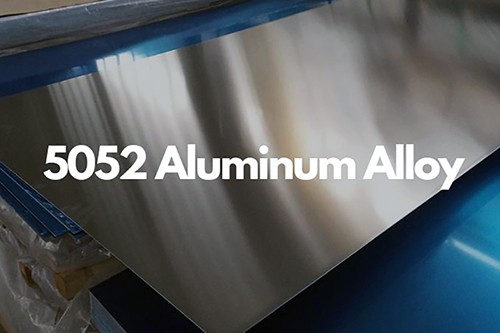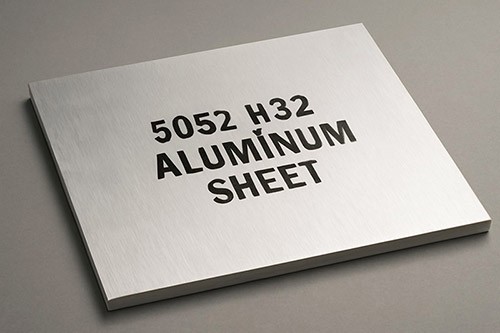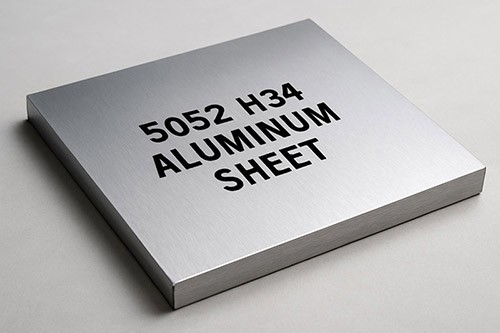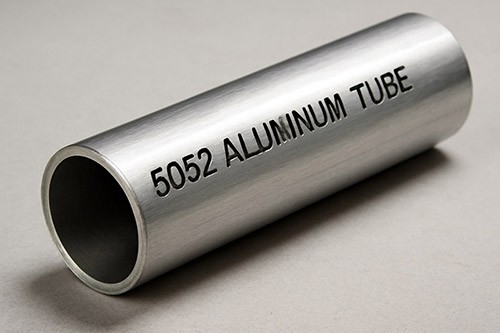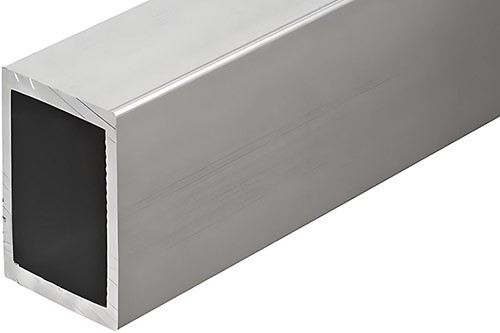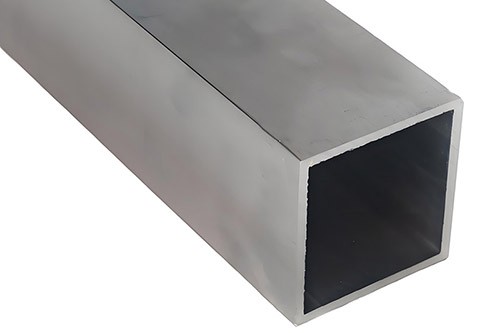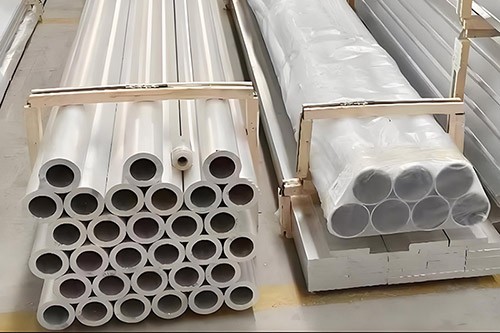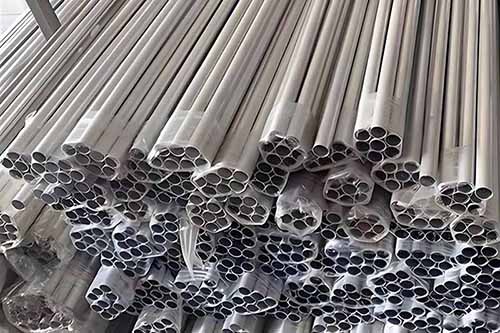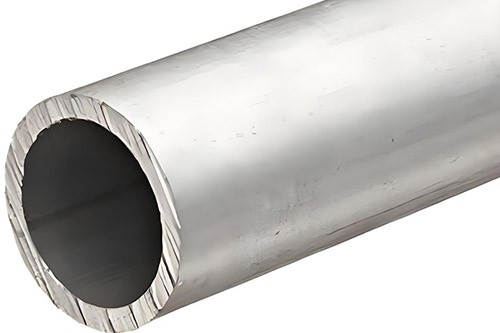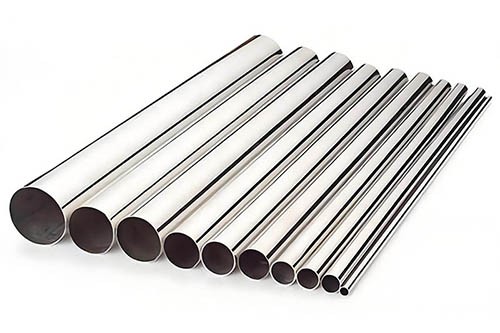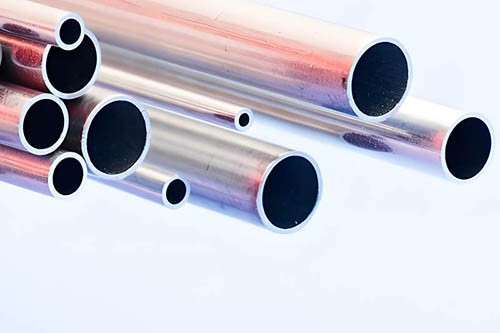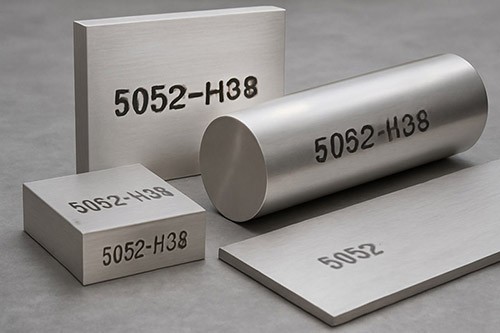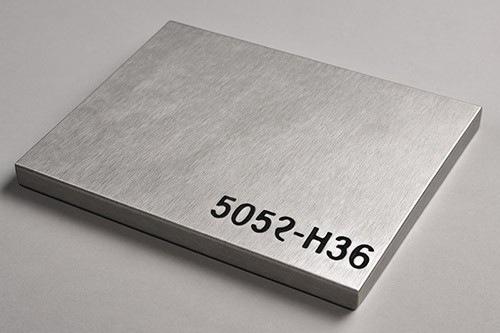Angle 5052-H32 Aluminum
5052-H32 angle aluminum is an L-shaped structural profile made from 5052 aluminum alloy, which is processed in the H32 temper.
5052-H32 angle aluminum is an L-shaped or right-angle profile made from 5052 aluminum alloy, treated in the H32 temper, which offers excellent corrosion resistance, medium strength, and good formability. It is widely used in construction, shipbuilding, automotive, electronics, and other industries.
Angle 5052-H32 Aluminum has no cracks, corrosion spots, and allows minor peeling or mechanical damage (defect depth ≤0.5mm, total area ≤5%).
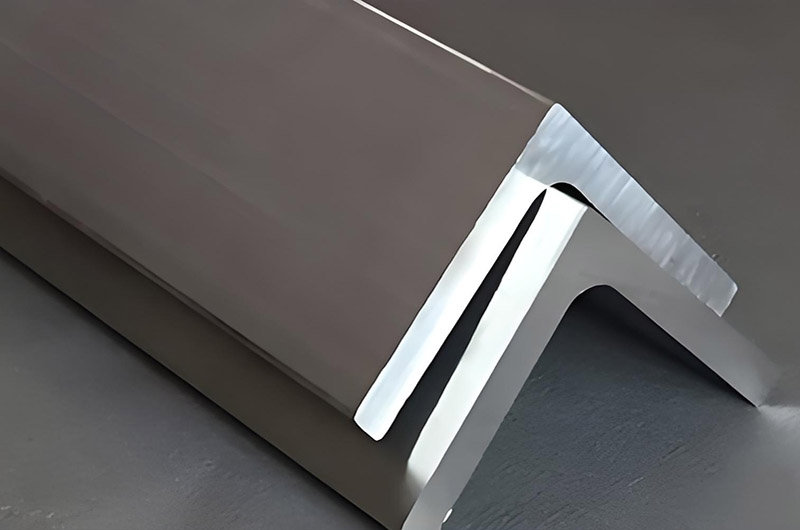
5052-H32 aluminum alloy is a high-strength, non-heat treatable alloy, with primary components including aluminum, magnesium (2.2-2.8%), and chromium (0.15-0.35%). The "H32" temper indicates that the material has undergone strain hardening and stabilization treatment, resulting in higher strength and better machinability.
Angle 5052-H32 Aluminum Corrosion Resistance
5052-H32 offers outstanding corrosion resistance, particularly to seawater and salt spray, making it an ideal choice for marine environments.
Angle 5052-H32 Aluminum Chemical Composition
5052-H32 is an Al-Mg series corrosion-resistant aluminum alloy, primarily composed of aluminum (balance), magnesium (2.2%-2.8%), chromium (0.15%-0.35%), with small amounts of silicon, iron, and other elements. Magnesium enhances strength and formability, while chromium improves corrosion resistance, making it particularly suitable for humid or marine environments.
Angle 5052-H32 Aluminum Mechanical Properties
- Tensile Strength: 210~260 MPa
- Yield Strength: ≥130 MPa
- Elongation: 5%~12%
- Brinell Hardness: 55~65 HBW
Suitable for structural support under medium load.
Compared to the O temper (annealed state), H32 is significantly stronger due to cold working and stabilization aging, while retaining some ductility, making it suitable for bending and welding processing.
Angle 5052-H32 Aluminum Key Advantages
- Corrosion Resistance: Forms a dense oxide film on the surface, resistant to seawater, salt spray, and chemical corrosion, making it ideal for marine and outdoor structures.
- Lightweight and Strength Balance: Low density (about 2.68 g/cm³) with higher strength than 1xxx and 3xxx series alloys, suitable for weight-reducing applications.
- Workability: Easily cold-formed (e.g., bending, stamping), welded (recommended for GMAW/GTAW processes), and performs well in surface treatments (anodizing, brushing, etc.).
- Structural Stability: The H32 temper, through cold working and stabilization, provides an optimal balance of strength and formability.
Angle 5052-H32 Aluminum Applications
5052 H32 Angle Aluminum in Marine Applications
5052 H32 angle aluminum, due to its excellent corrosion resistance and good weldability, is widely used in the marine industry, particularly in shipbuilding and marine engineering.
Hull Structure
5052 H32 angle aluminum is applied in hull structures mainly due to its excellent resistance to saltwater corrosion. Due to the long-term effects of seawater, which contains salt, oxygen, and moisture, hull materials are prone to corrosion. 5052 aluminum alloy can effectively resist corrosion in such environments, extending the lifespan of the hull. Additionally, it has excellent formability and weldability, making it easy to fabricate various hull components through welding and riveting.
Dock Support
In dock structures, 5052 H32 angle aluminum plays a significant role in structural support. Docks are facilities constantly exposed to seawater, requiring materials with corrosion resistance, fatigue resistance, and good structural stability. 5052 H32 aluminum alloy not only offers excellent seawater corrosion resistance but also provides higher strength and rigidity, making it ideal for constructing dock supports, railings, platforms, and other structural components.
Ship Deck Support Structures
In ship deck support structures, 5052 H32 angle aluminum is often used to construct deck frames, support beams, and supports due to its good corrosion resistance and mechanical properties (especially in marine environments). The combination of strength and toughness allows it to withstand the various loads and vibrations experienced by ships during navigation, while effectively preventing corrosion from seawater. Its weldability ensures these support structures can be precisely assembled during ship construction.
Saltwater Corrosion Resistance
5052 aluminum alloy has excellent resistance to saltwater corrosion, making it capable of withstanding the erosion of seawater in marine environments while maintaining good mechanical properties even in humid and salt-spray conditions. This is crucial for ships and marine structures, which are often exposed to harsh conditions at sea.
Weldability
5052 H32 angle aluminum has excellent weldability, making it suitable for welding ship structures, reinforcement components, and bulkheads. Particularly in hull welding, 5052 aluminum alloy ensures strong, durable welds, which is vital for the safety of ships.
Other Marine Applications
5052 H32 aluminum alloy is also widely used in other marine engineering components, such as:
- Floats: Used in offshore platforms or navigation buoys to provide stable buoyancy.
- Ship Platforms: Including cargo platforms, ship hatches, ladders, etc.
- Protective Barriers and Railings: Used in ship decks for safety structures.
With its high strength, corrosion resistance, and excellent weldability, 5052 H32 angle aluminum finds extensive application in shipbuilding and marine engineering. Its superior properties make it an ideal choice for hull structures, dock supports, deck support structures, and other marine facilities, providing durable and safe structural support for ships.
Other Applications of 5052 H32 Angle Aluminum
Thanks to its structural characteristics and performance advantages, 5052-H32 angle aluminum is commonly found in the following areas:
- Architectural Decoration: Curtain wall framework, door and window frames, roof fascia panels, roof edge reinforcements, combining strength and aesthetic appeal.
- Transportation: Automotive door frames, truck/trailer body reinforcements, automotive fuel tank supports, lightweight applications that enhance fuel efficiency.
- Electronics and Appliances: Electronic housing supports, radiator brackets, shell reinforcements, heat exchanger frames, utilizing its conductivity and fatigue resistance.
- Industrial Equipment: Machinery protection barriers, tank flange connections, enclosures, conveyor supports, suitable for dynamic load environments.
Angle 5052-H32 Aluminum Processing Characteristics
5052 alloy is well-known for its excellent weldability and formability. It can be easily welded using various methods, including gas welding, arc welding, and resistance welding. However, its machinability is average, meaning it may not be the best choice for high-volume machining.
- Excellent formability, supports bending, stamping, and other sheet metal processing, no cracking during 90° bending
- Good weldability, can be welded by fusion welding and resistance welding
- Cannot be heat-treated for strengthening, performance depends on work hardening
Angle 5052-H32 Aluminum vs Other Aluminum Alloys
Compared to other aluminum alloys, 5052-H32 strikes a balance between strength and formability. While alloys such as 6061-T6 offer higher tensile strength, 5052-H32 has outstanding corrosion resistance and is easier to form and weld.
5052-H32 vs 6061-T6
- Advantage: 5052 has better formability, suitable for complex bends; superior corrosion resistance, especially for marine environments.
- Disadvantage: 6061 has better machinability and higher tensile strength (310 MPa), making it suitable for precision parts.
5052-H32 vs 5083
- Advantage: 5052 has better surface oxidation treatment, suitable for decorative uses; moderate strength after work hardening, and lower cost.
- Disadvantage: 5083 has higher magnesium content (4%-4.9%), superior strength and corrosion resistance, but more difficult to form.
Angle 5052-H32 Aluminum Selection Recommendations
- In scenarios requiring fatigue resistance (such as vibrating parts), prioritize H32 condition.
- For high-precision bending, recommend thickness ≤ 3mm.
- After welding, local corrosion protection is recommended to maintain long-term performance.
5052-H32 angle aluminum, with its corrosion resistance, lightweight properties, and ease of processing, has become the preferred material for structural components in various industries.
Recommended for you
-
5052 Aluminum angle is a structural profile made from 5052 aluminum alloy, which is renowned for its excellent corrosion resistance, particularly in marine environments.
Other content readers are interested in
-
5052 marine grade aluminium checkered tread plate sheet
5052 Marine Grade Aluminum Checkerboard combines superior corrosion resistance, enhanced traction, lightweight construction and versatility, making it ideal for a variety of marine applications where durability and safety are critical.
-
5052 O H112 Marine Grade Aluminum Bar
5052 O H112 Marine Grade Aluminum Rod is a rod made from 5052 aluminum alloy that is fully annealed to improve workability and tempered to provide strength and resistance suitable for marine applications.
-
5052 Marine Grade Aluminum Plate Sheet
In seawater environments, 5052 aluminum alloy has corrosion resistance properties that are unmatched by many other materials.
-
Marine Grade Aluminum Square Bar 5052 5A02
Marine-grade aluminum square bars 5052 and 5A02 are two commonly used aluminum alloy materials in marine and corrosive environments, known for their excellent corrosion resistance and mechanical properties.
-
5052 O H112 Marine Grade Aluminum Hexagon Bar
The 5052 O H112 aluminum alloy hexagonal bar has excellent corrosion resistance, making it suitable for the manufacture of ship components.
-
5052 O H112 Marine Grade Aluminum Round Bars
5052 aluminum round bars have excellent formability and durability, making them widely used in the manufacturing of ship components.
-
The 5052 O aluminum plate has excellent formability, making it suitable for the complex curved structures and cold-formed components of ship hulls.
-
5052 H32 aluminum sheet is known for its excellent fatigue strength, good weldability, and corrosion resistance, making it particularly suitable for marine environments and vehicle manufacturing.
-
As a professional 5052-H34 aluminum sheet manufacturer, we provide high-quality products that meet AMS 4017 and ASTM B209 standards, specifically designed for the marine, automotive, and aerospace industries.
-
5052 Aluminum Tube Marine Applicability: Resistant to seawater corrosion; ideal for use in marine components. Complies with ASTM/AMS standards and is suitable for the shipbuilding and aerospace industries.
-
5052 Aluminum Rectangular Tube
As a representative of the 5000 series aluminum-magnesium alloys, the 5052 aluminum rectangular tube, with its excellent corrosion resistance, moderate strength, and lightweight characteristics, has become a core material in shipbuilding, aerospace, and the automotive industry.
-
The 5052 aluminum square tube is made from 5052 aluminum alloy and is processed into a square tube. It belongs to the Al-Mg series rust-resistant aluminum alloy.
-
5052 aluminum round tubing is made from 5052 aluminum alloy, which is a round tubular material.
-
5052 H32 aluminum tube is a typical Al-Mg series rust-proof aluminum alloy tube, combining the process of work hardening and stabilization treatment.
-
5052 Drawn Aluminum Tubing is a specialized aluminum alloy product that is manufactured using a cold drawing process, in which the aluminum material is pulled through a die to achieve precise dimensions and a smooth surface.
-
5052-O aluminum tube is made from 5052 aluminum alloy and processed through annealing (O-temper) to form the tubing.
-
Seamless 5052 aluminum tubing is a high-performance material, famous for its outstanding corrosion resistance (especially in marine environments) and its suitability for various structural and fluid handling applications.
-
5052-H38 is a strain-hardened aluminum-magnesium alloy, known for its high strength, corrosion resistance, and versatility in industrial applications.
-
5052-H36 aluminum alloy is a high-strength, non-heat treatable material in the 5000 series, offering excellent corrosion resistance, especially in marine environments, while also providing good weldability and medium strength.
Recommended for you
-
5083 is basically used to manufacture ship hulls because of its relatively high strength and good corrosion resistance.
-
6082 has medium strength and good corrosion resistance, while being lightweight, making it an ideal material for manufacturing components of high-speed vessels.
-
5086 aluminum alloy is irreplaceable in hull and deck applications in marine operating environments due to its unique seawater corrosion resistance, excellent low-temperature toughness, and good weldability.
-
5052 marine aluminum alloy is a high-strength, corrosion-resistant, easy-to-process and weld aluminum alloy, which is widely used in the manufacture of ships and marine structures.
-
Marine Grade Flat Aluminum refers to flat, rectangular marine aluminum sheets or strips used in structural components, decks, and other flat surfaces on vessels.
-
Marine-grade angular aluminum is used for reinforcing edges, frames, and supports in marine structures with L-shaped or angled aluminum profiles. It is valued for its structural support and corrosion-resistant properties.
-
Marine Grade T-Type Aluminum Profiles
Marine T aluminum is a type of aluminum profile specifically designed for shipbuilding, primarily used for connecting or reinforcing hull parts at a vertical angle.
-
Marine Grade I-Type Aluminum Profiles
Marine-grade I-beam aluminum: An I-beam or H-beam aluminum profile used in marine applications requiring high strength, typically used in the construction of beams, joists, and structural supports.
-
Marine Grade Aluminum Square Tube
Marine Grade Square Tube: A type of hollow square aluminum profile used in frameworks, railings, and other structural applications where both strength and corrosion resistance are critical.
-
Marine-grade aluminum troughs: A U-shaped or channel profile used in drainage systems, cable management, and structural components in marine environments. They help guide or support materials while resisting corrosion.
-
Marine Grade Aluminum Bulb Flat extrusions
The advantages of Aluminum Bulb Flat Extrusions over other types of extrusions are significant. Compared to traditional extrusions such as angles or flats, bulb flats offer better performance in load distribution and structural reinforcement.
More content of interest to readers
5086 Aluminum vs 5052 5083 vs 5052 Aluminum Sheets A Comprehensive Guide for Marine Uses 5052 Marine Aluminum: How to Improve Its Corrosion Resistance 3003 vs 5052 Marine Grade Sheet Material 5052 aluminum plate thickness standards and selection for shipbuilding 5052 marine-grade aluminum applications and advantages in shipbuilding 5052 and 5083 aluminum characteristics in saltwater Comparison of Marine Aluminum 5052 and 6061 Common marine aluminum plates 5083 5052 Marine grade 5052 checker aluminum plate for ship decks 5052 Marine Aluminum Plate for Yacht Construction 5083 5052 6082 6061 Aluminum sheet metal for boat building Marine grade aluminum 5052 5454 plate for shipbuilding
You might be interested in: Marine Grade Aluminum 5052 5052 aluminum 5052 aluminum sheet 5052 h32 5052 h34 5052 h32 aluminum 5052 aluminum plate 5052 0 aluminum sheet al5052

